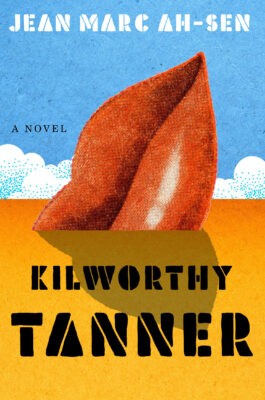Young, broke, ambitious, and with a penchant for older women, Jonno has all the makings of a great bohemian novelist. What he does not have is a novel. A chance encounter with the famed novelist Kilworthy Tanner brings with it the promise of both literary success and romantic fulfillment. The eponymous antiheroine of Jean Marc Ah-Sen’s third novel, Kilworthy is as beautiful as she is brilliant. A reluctant mentor, domineering lover, and master agitator, Kilworthy soon becomes infatuated with Jonno’s infatuation, enveloping him into the fold of a lightly fictionalized, highly aestheticized Toronto literary scene.

Kilworthy Tanner
Jean Marc Ah-Sen
Véhicule Press
$22.95
paper
280pp
9781550656633
Much to his chagrin, Jonno is alone in neither his infatuation nor admiration for Kilworthy. In her wake, Kil leaves a long trail of begrudged friends and lovers who, vulture-like, circle the famed artist to capitalize on her notoriety and advance their own careers. In this respect, Jonno might be the sole person in Kilworthy’s life who truly cares for her. His love is eclipsed only by his frustration with her jealous and self-destructive antics. For all the artistic promise their relationship holds, rather than working on his manuscript, Jonno spends his days assuaging Kilworthy’s fears and capitulating to her anxieties in a noxious cycle of drug-fueled sexcapades and petty rivalries.
Although self-described as a “pseudobiography,” Kilworthy Tanner more closely resembles a Künstlerroman, a novel about the formation of a young artist. Equally is it a comedy of manners, a work of hyper-aestheticized social realism for underemployed, over-titillated literary types. At the height of his stylistic powers, Ah-Sen evokes the lurid, laugh-aloud creative genius of the Earl of Rochester, if that debauched nobleman had penned the screenplay to Scott Pilgrim vs. the World. In one memorable episode early in the novel, a bloodied Jonno, fresh from fending off another of Kilworthy’s suitors, is tugged by his flaccid member across a lamplit Toronto street: “She dragged me back to my apartment before I had a chance to zip my pants up and so we walked the twenty meters back home with my shriveled joystick fluttering in the breeze.”
For all the loquacious entertainment of petty rivalry and lukewarm smut, the novel’s emotive core rests in the evolving relationship between a burgeoning writer and their practice or, in Jonno’s case, unpracticed naiveté. Despite his creative promise, Jonno cannot write, or subconsciously refuses to write, the novel that will free him from Kilworthy’s long shadow. For Jonno, Kilworthy embodies an anxiety of influence that takes on Freudian pathology: when the object of inspiration is also the greatest impediment to its completion. Is he creatively stunted, sexually perverted, or just a kid who’s gotten in over his head? More importantly, does the pain of heartbreak and trials of chasing literary success justify the material for a great novel and, if so, is he even the one to write it?
Jonno’s story will be familiar to many an aspiring artist in its not-so-very romantic depictions of self-delusion and self-dismissal. It is also a meditation on whether a writer has possession over their craft. In a rag-tag circle of artists who peddle their voices as commodities, and when the next advance might be years away, the only thing Jonno or Kilworthy can ever possess, even momentarily, is power over one another.
Kilworthy Tanner succeeds in recasting the pains of artistic creation into an absurd, slapstick, and often self-deprecating odyssey of Jonno’s artistic formation that asks what artists of all talents owe to themselves and one another, and to what lengths they might go to claim their due.mRb






0 Comments